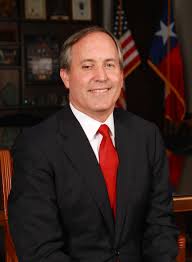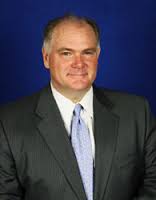Woe betide the “Borgata Babe” who loses or gains more than 7% of her body weight. Do it and you’re out the door. This archaic — to say nothing of sexist — policy was passively reaffirmed when the New Jersey Supreme Court refused to hear the case. Boyd Gaming “is pleased  with the decision,” as well it might be, although it perpetuates a double standard in which women’s physical appearance is an essential criterion of her employment on the casino floor. On the one hand, the casino industry continues to treat women like Barbie dolls. On the other, the courts are guilty of allowing them to continue doing so. It’s difficult to say where blame should be affixed, although casinos like Borgata could make the first step and enter the 21st century when it comes to their attitudes toward women.
with the decision,” as well it might be, although it perpetuates a double standard in which women’s physical appearance is an essential criterion of her employment on the casino floor. On the one hand, the casino industry continues to treat women like Barbie dolls. On the other, the courts are guilty of allowing them to continue doing so. It’s difficult to say where blame should be affixed, although casinos like Borgata could make the first step and enter the 21st century when it comes to their attitudes toward women.
The Supreme Court let stand a 2013 appellate court ruling that “The Borgata Babe position comprised more than a job serving drinks and washing glasses. From its inception, an element of performance and a public appearance component was part of the described Borgata Babe position.” In other words, you’re on display gals, so be prepared to have some T&A to please the patrons. According to The Press of Atlantic City, male cocktail servers at Borgata “must have broad shoulders and a slim waist.” We know of none who have bridled at this requirement, although in its rudiments it seems less draconian than the standard imposed on the Borgata Babes. The casino says “our policy is fair” but we beg to differ.
* Daily fantasy sports could lose a quarter of its American audience, depending on whether Texas legislators act upon an advisory opinion  from Attorney General Ken Paxton. Noting that in Texas law, gambling involves an element of ‘partial chance,’ Paxton stated that it’s “beyond reasonable dispute that daily fantasy leagues involve an element of chance regarding how a selected player will perform on game day.” So if you had Rob Gronkowski on your fantasy team last weekend and he had pulled up lame, that’s gambling.
from Attorney General Ken Paxton. Noting that in Texas law, gambling involves an element of ‘partial chance,’ Paxton stated that it’s “beyond reasonable dispute that daily fantasy leagues involve an element of chance regarding how a selected player will perform on game day.” So if you had Rob Gronkowski on your fantasy team last weekend and he had pulled up lame, that’s gambling.
Writing that DFS operators’ rationalizations aren’t congruent with Lone Star law, Paxton continued, “Simply put, it is prohibited gambling in Texas if you bet on the performance of a participant in a sporting event and the house takes a cut.” DraftKings quickly shot back, accusing Paxton of a “basic misunderstanding” of DFS, and arguing that the sport is a game of skill and therefore legal in Texas. The DFS leader said it would “continue to operate openly and transparently” in the Lone Star State.
The goal of Paxton’s opinion, which Dallas Mavericks owner Mark Cuban denounced as part of a larger wave of “stupidity and hypocrisy,” appears less to have been to influence lawmakers than to head off the Texas Lottery at the pass. The lottery had been in talks with DraftKings  about incorporating some form of DFS into its games. Texas Lottery Commission Executive Director Gary Grief caught grief from Gov. Greg Abbott (R, right) after commissioners went on a fact-finding mission to Delaware. It was more than a casual dalliance, as Grief wrote, “I want to put together a comprehensive proposal for a fantasy football game that can be run under the [commission’s] authority … The Cowboys have a relationship with FanDuel [sic] and they retain a lobbyist I know in Austin.” DraftKings denies having ever been so much as in communication with the lottery commission (although Grief directed staffers to pursue a contract with DraftKings).
about incorporating some form of DFS into its games. Texas Lottery Commission Executive Director Gary Grief caught grief from Gov. Greg Abbott (R, right) after commissioners went on a fact-finding mission to Delaware. It was more than a casual dalliance, as Grief wrote, “I want to put together a comprehensive proposal for a fantasy football game that can be run under the [commission’s] authority … The Cowboys have a relationship with FanDuel [sic] and they retain a lobbyist I know in Austin.” DraftKings denies having ever been so much as in communication with the lottery commission (although Grief directed staffers to pursue a contract with DraftKings).
Meanwhile, Grief sent emissaries to Delaware. It was under the misperception that Delaware’s sports betting is a form of lottery, rather than the parlay betting it actually is. When the Ethan Haskell scandal  broke, Grief wrote, “The easy money may have already been made.” But he continued to pursue DFS. One state that offers fantasy-sports betting in casinos is Montana but it rakes in only $300,000 annually, chump change compared to the state’s lottery. Between Abbott lowering the boom on Grief, and Paxton’s opinion, the lottery board is staying on the sidelines of the DFS debate. “From now on, when somebody from the Legislature calls and says, ‘We might be taking this up,’ the first thing that’s going to happen is going to be a call to governor’s office. We’re not sticking our neck out for anything,” said Lottery Commission Chairman Winston Krause (above). As for Paxton, he might want to remove the securities fraud beam from his eye before going after the DFS mote in Grief’s.
broke, Grief wrote, “The easy money may have already been made.” But he continued to pursue DFS. One state that offers fantasy-sports betting in casinos is Montana but it rakes in only $300,000 annually, chump change compared to the state’s lottery. Between Abbott lowering the boom on Grief, and Paxton’s opinion, the lottery board is staying on the sidelines of the DFS debate. “From now on, when somebody from the Legislature calls and says, ‘We might be taking this up,’ the first thing that’s going to happen is going to be a call to governor’s office. We’re not sticking our neck out for anything,” said Lottery Commission Chairman Winston Krause (above). As for Paxton, he might want to remove the securities fraud beam from his eye before going after the DFS mote in Grief’s.
The Fort Worth Star-Telegram argues that Abbott and Paxton are merely acting within the letter of the law and that voters have a simple solution: Elect pro-gaming legislative candidates.
* DFS is also under siege in Vermont, where Attorney General Bill Sorrell is trying to ban it. Social worker Steve May argues that this tactic will be counterproductive. He adds, “It’s time that we address the actual harms caused by betting, increasing treatment resources and programming for pathological gamblers instead of wringing our hands and moralizing about the choices that consenting adults make.”
The Los Angeles Times has also weighed in on behalf of legalized regulated DFS — and Internet gambling in general. Describing the likes of Sorrell as “way behind the curve,” the LAT tries to nudge California  Attorney General Kamala Harris (right) off the fence. Arguing that the DFS genie is hopelessly out of the bottle, the LAT editorial board opines, “The smart approach is to regulate the leagues, ideally within the context of a comprehensive approach to online gaming. That way the state can protect consumers against fly-by-night sites while requiring companies to use sophisticated technology to block minors and problem gamblers, pay fees that can be used for oversight and enforcement, and guard consumers against insiders competing unfairly for jackpots, as both FanDuel and DraftKings were accused of allowing last year,” adding, “None of those protections is assured online today.”
Attorney General Kamala Harris (right) off the fence. Arguing that the DFS genie is hopelessly out of the bottle, the LAT editorial board opines, “The smart approach is to regulate the leagues, ideally within the context of a comprehensive approach to online gaming. That way the state can protect consumers against fly-by-night sites while requiring companies to use sophisticated technology to block minors and problem gamblers, pay fees that can be used for oversight and enforcement, and guard consumers against insiders competing unfairly for jackpots, as both FanDuel and DraftKings were accused of allowing last year,” adding, “None of those protections is assured online today.”
We agree.

